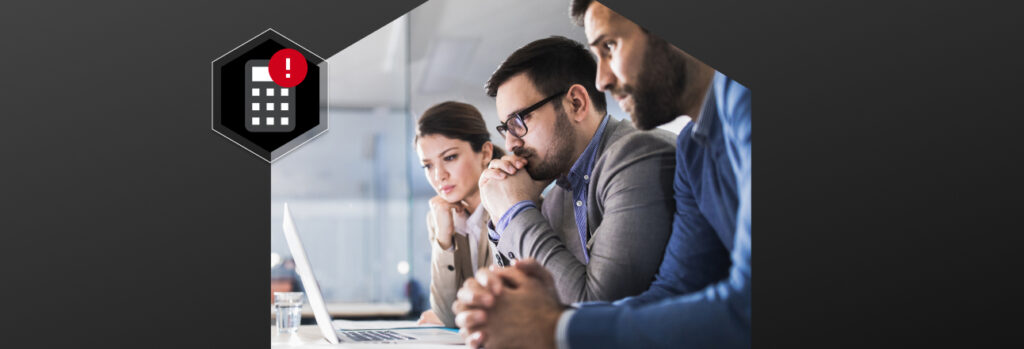Many organizations have yet to invest in a PAM solution because they can be expensive and complex. While this is true for some legacy PAM solutions,
Accounting firms handle sensitive client data on a daily basis, making them prime targets for cybercrime. According to PwC, accounting firms have a 30% higher risk of cyber attacks than other businesses. Breaches in the industry are among the most expensive, with IBM’s “Cost of a Data Breach 2022” report finding the average breach totaled $5.97 million.
In this blog, we’ll take a look at the specific cybersecurity challenges for accounting firms and the role that privileged access management can play in securing the industry.
Cybersecurity Challenges Facing the Accounting Industry
Sensitive accounting data includes confidential information like business plans, tax records, intellectual property and compliance audits. It also includes the Personally Identifiable Information (PII) of employees and customers, such as dates of birth (DOB), payroll and taxpayer information, as well as social security and identification numbers.
Cloud accounting software has made the transition to distributed work environments possible and enables efficient management of client data and third-party collaboration. However, security flaws in popular accounting software, coupled with poor security practices at many firms, have amplified cybersecurity risk.
Increasingly stringent regulatory controls, such as the European Union’s General Data Protection Regulation (GDPR) and Payment Card Industry Data Security Standard (PCI DSS), require certain controls to maintain compliance and ensure the secure exchange of sensitive information. Because of those compliance requirements, firms need to provide varying levels of access — in addition to administrative controls requiring segregation of duties.
How Accounting Firms Can Gain Visibility, Security and Control
While industry trends in cybercrime, cloud computing and compliance have introduced new complexity, there are a number of Privileged Access Management (PAM) strategies Information Technology (IT) teams can adopt to protect client and firm information.
- Privilege Account Session Management
Privileged Account Session Management (PASM) refers to the practice of managing and securing privileged accounts that are used to access sensitive data or systems within an organization.
These privileged accounts, often referred to as “superuser” or “admin” accounts, have elevated access privileges that enable the user to perform critical functions such as system configuration, database management, and application administration.
Effective PASM involves the implementation of controls and processes to manage and monitor these privileged accounts, including:
- Strong authentication mechanisms: Access to privileged accounts should be protected by strong authentication mechanisms such as multi-factor authentication, biometric authentication or smart cards.
- Role-based access control: Access to privileged accounts should be restricted based on a user’s job role, following the principle of least privilege, with only authorized users being granted access.
- Session monitoring: All privileged sessions should be closely monitored and recorded, with activity logs being reviewed on a regular basis to detect any suspicious activity.
- Session isolation: Privileged sessions should be isolated from other sessions to prevent unauthorized access to sensitive data or systems.
- Password management: Passwords for privileged accounts should be frequently rotated and should be complex to prevent unauthorized access.
- Automated access and session management: Automated tools can be used to manage and monitor privileged accounts, helping to ensure access is only granted to authorized users.
Overall, PASM is an essential component of an organization’s security strategy, helping to prevent data breaches, insider threats and other security incidents that can have a significant impact on the business.
- Password Vault
A password vault is an encrypted digital vault that stores login credentials, documents, files and other sensitive information. Encryption converts credentials from a readable format into ciphertext, which consists of blocks of random characters that neither human readers nor computers can make sense of until it’s decrypted using an encryption key — a random string of bits used to decrypt the data back into its original form.
A vault gives users a single master password to log in — or the option to authenticate their identity against their current Identity Provider (IdP) solution.
With an enterprise password management system, IT teams can protect all employee credentials. Many enterprise password managers provide role-based access controls, enabling IT administrators to grant varying levels of access to credentials based on employee personas.
- Reporting, Compliance and Audits
An effective solution must contain granular access controls that enforce least privilege, ensuring users only have access to the systems and data they need to do their jobs. This includes role-based access control, time-based access control and session isolation.
In addition to these controls, regulations such as Sarbanes-Oxley (SOX) in the United States and GDPR in Europe require monitoring of access permissions and event auditing. As cybersecurity regulations increase, accounting firms need comprehensive policies and tools to ensure compliance, including for events like failed logins, administrative changes, record sharing, vault transfers and remote access to IT infrastructure.
The ability to audit and control access to credentials, sensitive information and infrastructure is critical to maintain compliance and prevent a data breach.
How Keeper Security Protects Accounting Firms
If accounting firms suffer a data breach, they risk lawsuits, regulatory fines, tarnished reputations, damage to their clients and even worse, insolvency. With Keeper Security, the trusted leader in enterprise password and privileged access management, accounting firms and their clients have controlled and secure access to encrypted passwords and files.
- Securely Store and Share Sensitive Client Information
Keeper’s digital vault serves as a secure portal for employees to efficiently receive, send and store sensitive client information with full end-to-end encryption — putting an end to the risky practice of sharing confidential information over email, text or instant messaging. Custom fields and notes allow employees to save important information and facilitate form filling, while configurable permission settings provide control over who has access to view records on a case-by-case basis.
Keeper also helps accounting firms prevent data breaches with strong passwords. Keeper generates high-strength, random passwords that will autofill — eliminating the need to remember the many passwords necessary for employees to access applications and accounts. Keeper can also “mask” shared passwords for increased security. With the Keeper admin console, IT can enforce employee password policies and gain clear visibility into the firm’s password hygiene.
- Remote Desktop and Server Access
Keeper Connection Manager (KCM) solves the complexity of securing remote infrastructure with a modern, agentless solution that provides the security, ease of use and speed required in today’s distributed, remote work environments.
KCM provides access to privileged systems such as desktops and servers, without having to share credentials. Access can be revoked at any time, and session recording monitors and alerts administrators to suspicious events and activity. A robust audit trail identifies when and how the system was used — improving security and compliance.
- Detect and Prevent Suspicious Password-Related Activity
The Keeper Advanced Reporting and Alerts Module (ARAM) enables administrators to create alerts for suspicious activity related to passwords, enabling them to proactively identify, detect and prevent password-related attacks.
Keeper Compliance Reports allow Keeper Administrators to monitor and report the access permissions of privileged accounts across the entire organization, in a zero-trust and zero-knowledge security environment.
Interested in how Keeper Security can help your accounting firm address specific security concerns? Talk to one of our cybersecurity experts.
 PAM
PAM 
